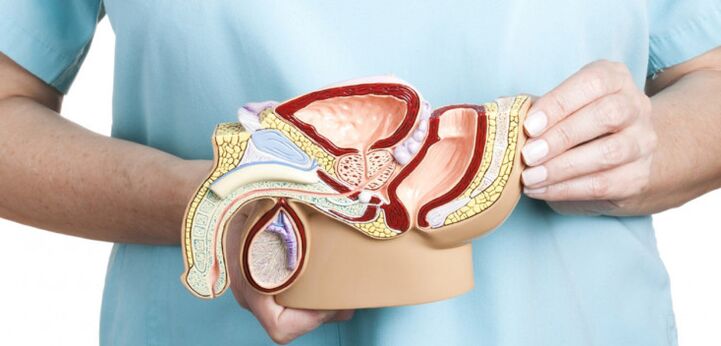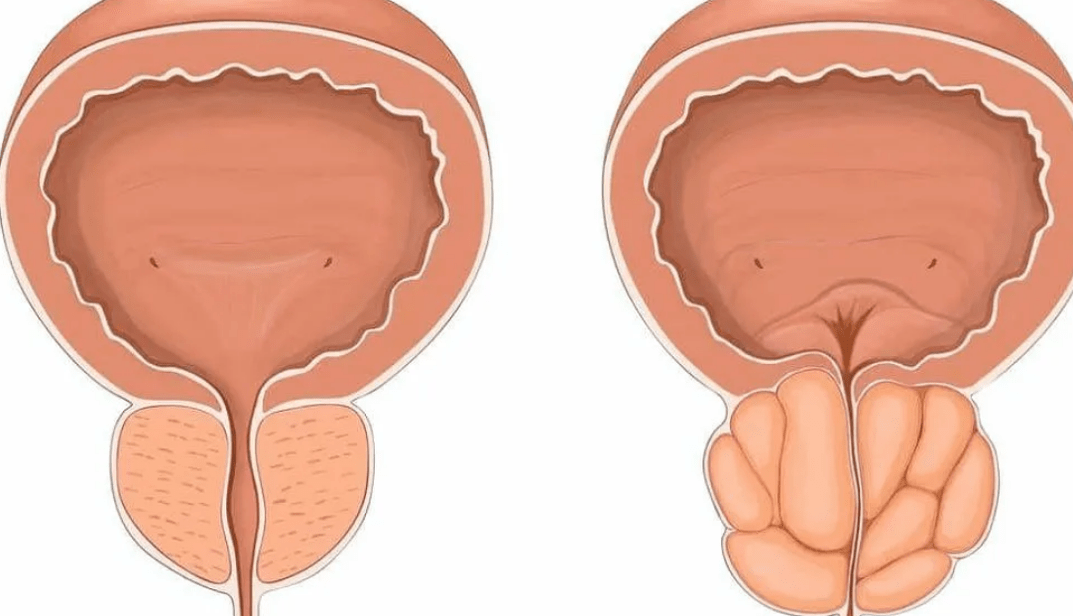
Prostatitis is an inflammation of the prostate. It is the most common disease in men.
It is believed that the disease with prostatitis is in most cases associated with the penetration of infection. However, this is not entirely true. In some cases, the diseases are non-infectious in nature.
The main cause of prostatitis is due to the peculiarities of the anatomical structure of the prostate and its blood supply.
Characteristics of prostatitis

The prostate is located in the pelvic region. Its anatomical structure differs from the structure of all other human glands. The prostate consists of several parts and only one of them contains glandular tissue. The glandular tissue of the prostate is made up of many small glands, each of which has its own excretory duct. The ducts merge to form the larger ducts. In the small and large ducts there are extensions, sinuses, in which the secret of the prostate accumulates - prostatic juice. In turn, prostatic juice is an excellent nutrient medium for the development of bacteria, and the cells lining the sinuses are an excellent substrate for the life of intracellular sexual infection (chlamydia, mycoplasmas, ureoplasmas, viruses). In addition, the prostate does not have its own major blood vessels and is supplied with blood by small vessels from eight to ten sources. Therefore, the blood flow in the prostate is initially low, which predisposes both to the development of an infectious onset and to the formation of congestive changes in the prostate tissue itself. These circumstances largely determine the complexity of structural changes in the prostate gland and the variety of clinical forms of prostatitis.
There are many classifications of prostatitis, but none of them are completely exhaustive. Briefly, there are two main types of prostatitis: chronic and acute.
Acute prostatitisdiffers from the chronic in a more vivid symptom complex. Its treatment is carried out with the use of large doses of antibiotics, and in some cases it becomes necessary to perform an operation to remove prostate abscesses.
Symptoms of acute prostatitis
High temperature, severe pain in the perineum, groin, above the pubis. Pain when urinating. General poor health. Decreased power, etc.
In chronic prostatitis, the clinical picture is often unclear.There may be no symptoms. Very often, problems with potency and sexual intercourse are attributed to general fatigue, psychological stress at work, lack of rest, and therefore a person simply does not understand that he is sick. Therefore, in this case, preventive examinations play an important role, the purpose of which is to identify the incipient inflammation of the prostate.
Symptoms of chronic prostatitis
- pain arising and passing quite quickly in the perineum, inguinal region, above the pubis;
- decreased libido (libido);
- change in the duration of sexual intercourse (in some cases rapid ejaculation, in others - a significant lengthening of sexual intercourse);
- change in the nature of sexual sensation (decreased brightness of orgasm);
- the appearance of discharge from the urethra, especially in the morning.
Why is prostatitis dangerous?
In the absence of qualified treatment of prostatitis, then there is a violation of sexual function - impotence, impaired ejaculation (in particular, accelerated ejaculation). Prostatitis can become chronic and lead to urolithiasis and infertility.
Treatment of prostatitis
Treatment of prostatitis should be comprehensive and well chosen. Treatment includes measures such as antibiotic therapy, prostate massage. Prostate massage, despite the fact that it causes a number of unpleasant sensations, is a necessary procedure. First, for diagnosis, when you need to take the prostate secret for research, additionally, in some cases, a massage is performed in order to decongest the prostate. Usually this event is approached seriously and selectively.
For the treatment of prostatitis, physiotherapy, immunoregulatory therapy, lifestyle correction are widely used.
In modern medicine, physiotherapeutic methods of treatment and prevention of a wide range of diseases are used almost everywhere. Considering many years of experience in the effective use of physiotherapy from our country and foreign doctors, for the treatment of our patients, we use only advanced and newest imported equipment for procedures. electrotherapy (electrophoresis, pulsed and alternating currents, electrical stimulation, etc. ), laser therapy of various spectrums, ultrasound therapy, magnetic therapy, vacuum therapy.
Prevention of prostatitis
To prevent prostatitis, it is important to organize your life so that it contains as few risk factors as possible for the development of this disease. It is recommended to establish a balanced diet, limit the consumption of spicy and fatty foods, not to abuse alcohol and maintain a stable normal weight. Stay cool and move as much as possible. It is necessary to have a regular sex life, without long periods of abstinence, in order to maintain a constant circulation of sperm and an active blood supply to the prostate. True, one should not forget that the development of prostatitis is often provoked by sexually transmitted infections, therefore sexual intercourse should not only be regular, but also necessarily protected. Ideally, every man should have a preventive examination by a urologist at least once a year. First of all, it is necessary to examine the secret of the prostate and perform an ultrasound examination of the prostate. After 40 years, it is imperative to donate blood for tumor markers.
Prostatitis is a complex and insidious disease; its treatment is a big problem for doctors all over the world. However, this does not mean that the doctor cannot help the patient with prostatitis. It is not always possible to completely cure the patient, but to eliminate the symptoms of prostatitis, to cause long-term stable remission, modern medicine is able to do this. And the duration of this period depends on the patient himself. If he will honestly follow the doctor's recommendations.
Inflammation of the prostate is a disease that is much easier to avoid than to cure. Make small changes in your life that are useful and necessary for the prevention of prostatitis, and you will not suffer from this unpleasant and complex disease all your life.
Be sure to consult a qualified specialist in the field of male diseases at the Semeynaya Clinic.

























